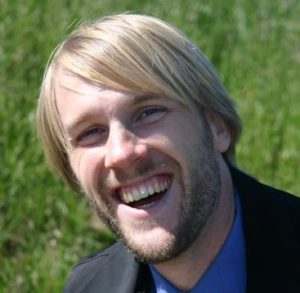
Dusty Hoesly is a doctoral candidate in the Department of Religious Studies at the University of California, Santa Barbara, specializing in Religions of North America. His research focuses on religion and irreligion in the American West, specifically the values held by people who self-describe as not religious, how those values developed, how they translate into social or political action, and how irreligious people interpret experiences that stand apart from ordinary life. Incorporating fieldwork, surveys, and historical and material culture research, this project will help explain the growth of religious “nones” in the U.S. and reexamine the categories of sacred and secular in contemporary society. Other research interests include religion in the American West, comparative secularisms, liberal evangelicalism, and religion and politics.
The Last Best Hope of Earth? Bron Taylor and the Limits of Dark Green Religion (Essay)
Michele Dillon on Habermas, Religion and the Post-Secular (Interview)
Religion, Secularism and the Chaplaincy (Essay)
Baby Boomers, Quest Culture, and Spiritual Seeking: An Interview with Wade Clark Roof (Interview)
Most scholars examining invisibility in Ellison’s novel consider it a social metaphor: the novel’s protagonist is made invisible by people’s refusal to really see him. Yet Harriss claims invisibility is also a theological trope, with roots in biblical materials, Protestantism, and Kongo traditions, antecedents that establish it as an unmarked religious category. More than the social marginalization of black bodies, Harriss contends invisibility is metaphysical, too.
In its earliest uses, the word “yoga” meant “yoke,” primarily yoking a warhorse to a chariot. In the classical period, yoga took on a variety of other meanings, including yoking the mind-body complex through meditative practices, such as breath control and mantras, to achieve liberation. In this interview, ...
In this interview, we first focus on the origins of the term “secularism,” the proliferation of its meanings, and the uses to which it is put in Anglo-American contexts. Then we discuss the uses of the terms secularism and the secular today, particularly using a specific case study from Joe’s research on American nonbeliever organizations.
For this interview with Lynn Davidman, we focus on the concepts of conversion and deconversion, illustrations of these processes in various contexts, what each term means and how each is experienced in someone's life, the histories of these terms and their use in scholarship, and issues that arise from their conceptualization or use.
In this week's podcast we focus on religious demography and identification, survey tools used for religious demography in America, differences between religious identities and identifications, Americans’ shifting religious identifications, correlations between religion and social positions such as ethnicity or generational cohort, and correlations with various social and political issues.
In this interview, we focus the topic of race: particularly how it has been examined (and ignored) in the field of religious studies, how it has been confused with ethnicity, how race and religion have been theorized as mutually constitutive, limitations and occlusions in the study of race and religion, and why race is a category scholars of religion cannot afford to ignore.
In this interview, discussion focuses on Roof’s work on the Baby Boom generation and beyond, particularly as expressed in his books A Generation of Seekers (1993) and Spiritual Marketplace (1999). In these books, Roof combined survey data with panel studies and interviews across a broad spectrum ...
Habermas mostly ignored religion, contending that it was not rational enough to be included in public debate. But over the past decade, he has begun to reexamine religion in light of its persistence in the modern world, calling this a turn toward post-secular society. He argues that religion deserves a place in public debate, ...
"As Sullivan and other religious studies scholars complicate terms like religion and secularism, reducing these terms to near incoherence, and insist on the constant intermingling of the sacred and the secular, they leave jurists and legislators in a predicament with important practical consequences."
Bron Taylor, Professor of Religion and Nature at the University of Florida, and editor-in-chief of the Encyclopedia of Religion and Nature (2008), may be the best interpreter of environmentalism as a religious project working today. His latest book, Dark Green Religion: Nature Spirituality and the Planetary Future (2010), argues that the constellation of spiritual and naturalistic worldviews
This work is licensed under a Creative Commons Attribution- NonCommercial- NoDerivs 3.0 Unported License.
The views expressed in podcasts, features and responses are the views of the individual contributors, and do not necessarily reflect the views of The Religious Studies Project or our sponsors. The Religious Studies Project is produced by the Religious Studies Project Association (SCIO), a Scottish Charitable Incorporated Organisation (charity number SC047750).